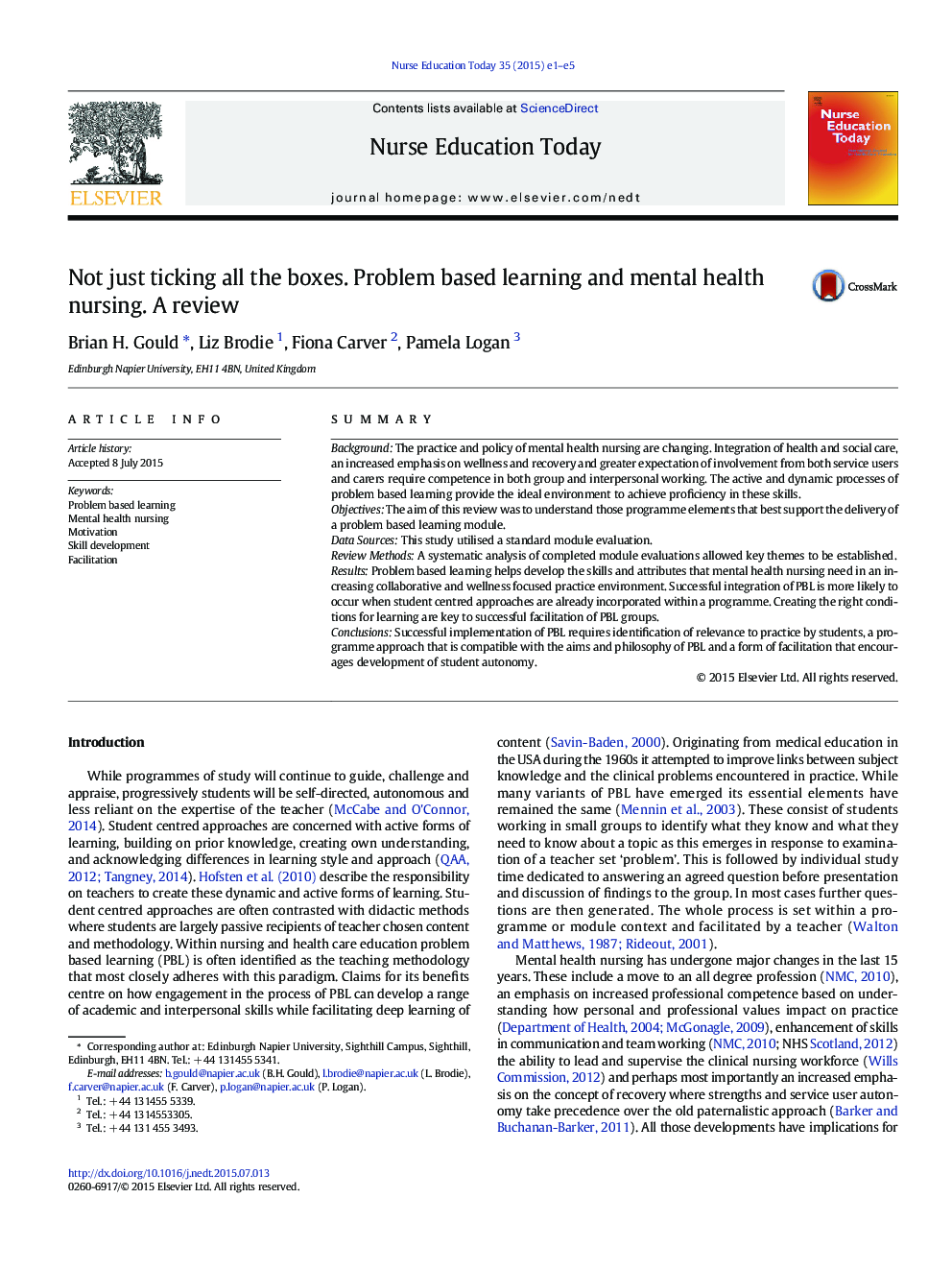| Article ID | Journal | Published Year | Pages | File Type |
|---|---|---|---|---|
| 368101 | Nurse Education Today | 2015 | 5 Pages |
•Student perception of the value of learning to future practice is central to enhancing motivation.•Successful integration of PBL occurs when student centred approaches are already incorporated within a programme.•Creating the right conditions for learning are key to successful facilitation of PBL groups
SummaryBackgroundThe practice and policy of mental health nursing are changing. Integration of health and social care, an increased emphasis on wellness and recovery and greater expectation of involvement from both service users and carers require competence in both group and interpersonal working. The active and dynamic processes of problem based learning provide the ideal environment to achieve proficiency in these skills.ObjectivesThe aim of this review was to understand those programme elements that best support the delivery of a problem based learning module.Data SourcesThis study utilised a standard module evaluation.Review MethodsA systematic analysis of completed module evaluations allowed key themes to be established.ResultsProblem based learning helps develop the skills and attributes that mental health nursing need in an increasing collaborative and wellness focused practice environment. Successful integration of PBL is more likely to occur when student centred approaches are already incorporated within a programme. Creating the right conditions for learning are key to successful facilitation of PBL groups.ConclusionsSuccessful implementation of PBL requires identification of relevance to practice by students, a programme approach that is compatible with the aims and philosophy of PBL and a form of facilitation that encourages development of student autonomy.
